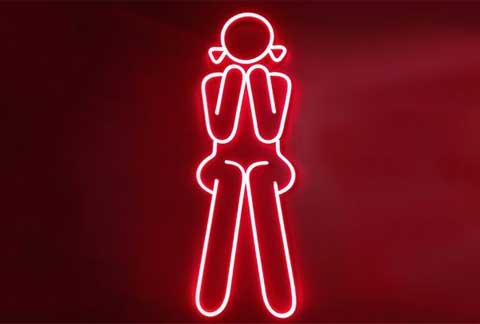+91 8275066599
Book an Appointment
info@myaesthetic.in
Book an Appointment
3/26,27, Gokhale Nagar Road
Pune - 411016, MH, India
Menstrual Health Treatment
-
What is the difference between chronic and acute abnormal uterine bleeding?
Abnormal uterine bleeding can be a chronic condition, which means that it has happened often for at least the past 6 months.
Sudden, unusual episodes of abnormal bleeding also can occur. This is called acute abnormal uterine bleeding. If you are changing pads or tampons every hour for more than 2 hours in a row, and you also have chest pain, have shortness of breath, and are lightheaded or dizzy, seek emergency medical care right away.

-
At what ages is abnormal bleeding more common?
Abnormal bleeding can occur at any age. But at certain times in a woman’s life it is common for periods to be somewhat irregular:
- Periods may not occur regularly when a girl first starts having them (around age 9 to 14).
- During perimenopause (around age 50), the number of days between periods may change. It is common to skip periods or for bleeding to get lighter or heavier at this time.
Although these changes may be expected, you should talk with your obstetrician–gynecologist (ob-gyn) about any abnormal uterine bleeding.
-
What causes abnormal bleeding?
Some of the causes of abnormal bleeding include the following

- Problems with ovulation—Lack of ovulation can cause irregular, sometimes heavy, menstrual bleeding. If you do not ovulate for several menstrual cycles, areas of the endometrium (the tissue that lines the uterus) can become too thick. This condition can occur during the first few years after you start having periods and during perimenopause. It also can occur in women with certain medical conditions, such as polycystic ovary syndrome (PCOS) and hypothyroidism.
- Fibroids and polyps—Fibroids are noncancerous growths that form from the muscle tissue of the uterus. Polyps are another type of noncancerous growth. They can be found inside the uterus or on the cervix. Both can cause irregular or heavy menstrual bleeding.
- Adenomyosis—In this condition, the endometrium grows into the wall of the uterus. Signs and symptoms may include heavy menstrual bleeding and menstrual pain that worsens with age.
- Bleeding disorders—When a woman’s blood does not clot properly, there can be heavy bleeding. You may have a bleeding disorder if you have had heavy periods since you first started menstruating. Other signs include heavy bleeding after childbirth or during surgery, gum bleeding after dental work, easy bruising, and frequent nosebleeds.
- Medications—Hormonal birth control methods can cause changes in bleeding, including breakthrough bleeding (bleeding at a time other than your period). Some medications, such as blood thinners and aspirin, can cause heavy menstrual bleeding. The copper intrauterine device (IUD) can cause heavier menstrual bleeding, especially during the first year of use.
- Cancer—Abnormal uterine bleeding can be an early sign of endometrial cancer. Most cases of endometrial cancer occur in women in their mid-60s who are past menopause. It usually is diagnosed at an early stage when treatment is most effective. A condition that can lead to endometrial cancer is called endometrial intraepithelial neoplasia (EIN). It also causes abnormal uterine bleeding. Treatment of this condition can prevent endometrial cancer.
- Other causes— Endometriosis and other problems related to the endometrium can cause heavy menstrual bleeding. Other causes of abnormal uterine bleeding include those related to pregnancy, such as ectopic pregnancy and miscarriage. Pelvic inflammatory disease (PID) also can be a cause. Sometimes, there is more than one cause.
fix an appointment

